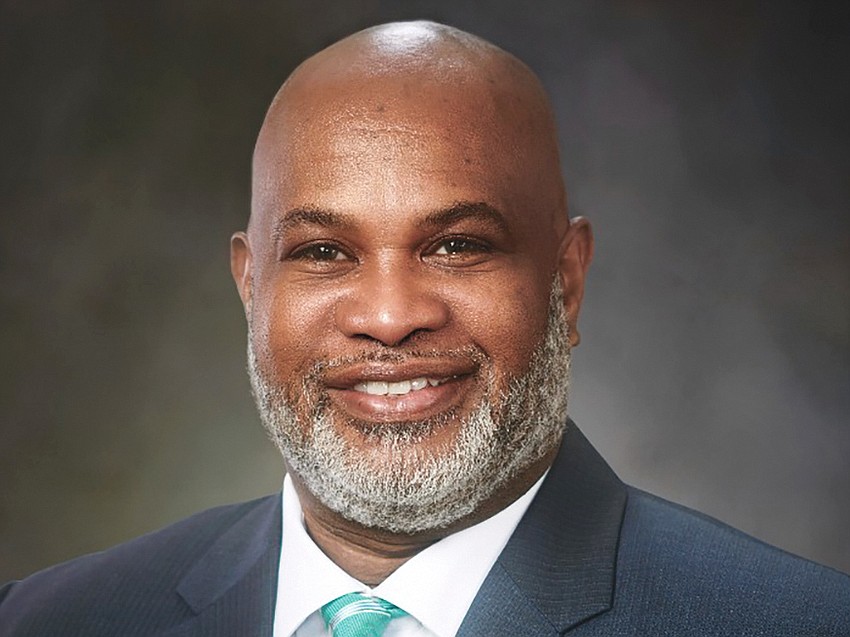
LEADERSHIP DEVELOPMENT
President and CEO, Jacksonville Civic Council

The primary economic issue facing Jacksonville’s leadership development is our reticence about celebrating the world-class companies, organizations and initiatives we already have.
The Jacksonville Civic Council’s vision is for Jacksonville to become a “destination of choice” for businesses, families and individuals, and graduates by the year 2032.
We work with other stakeholders on four key pillars: Inspire people to believe we can do great things; prepare our young people for the workforce of tomorrow; connect the city and build vibrant places that foster a great quality of life; and advance our community by promoting economic opportunity for all.
We plan to celebrate the companies, organizations and initiatives that are already world-class to build pride in what we already have and to inspire confidence that by reaching even higher – together – we can make Jacksonville a thriving city for all.
PHILANTHROPY
President, The Community Foundation for Northeast Florida

The primary economic issue facing philanthropy is the $791+ billion in wealth that will transfer from the estates of baby boomers in Northeast Florida as they pass away over the next 50 years.
The Community Foundation for Northeast Florida is working with estate attorneys to educate them about their role in helping to steer part of this wealth to benefit local nonprofits. Research has shown that 30% of people over 65 in Florida do not have a will, and of those who do, only 16% have included a charity. The transfer of wealth is a special opportunity to build endowments at The Community Foundation and with organizations that have their own endowments. Endowments create a steady, guaranteed source of income for local nonprofits that are the touchstone of our quality of life: museums, parks, human services, places of worship and so much more.
REGIONAL ECONOMIC DEVELOPMENT
President, JAXUSA Partnership

The primary economic issue facing regional economic development is developing and attracting top talent.
Talent development is the first pillar in The Future is Now, our five-year strategic plan for regional economic development.
The goal is to promote the development of accessible career pathways that create a robust talent pipeline reflective of employer needs. We will do that by:
1. Growing career exploration and training programs that expose youth and adults to job opportunities across Northeast Florida.
2. Deepening partner engagement across workforce and talent development initiatives to ensure talent is retained in Northeast Florida.
3. Prioritizing the workforce support ecosystem through collaborative partnerships.
4. Bolstering talent attraction and marketing initiatives to grow a diverse pool of top-tier talent.
RETAILING
Owner and President, Kilwins/Jacksonville

The primary economic issue facing retail is the continued rising costs of goods.
It is a challenge. You can only pass so much on to the customer.
We continue to see increasingly high rent/lease increases, the minimum wage continues to increase annually by $1 per hour, and there is a shortage of staffing causing us to offer more to attract applicants.
We have to increase our prices on almost all items we sell to be profitable.
The few staff we have work more hours and owners are working more hours to cover for the shortage of staff.
We do the best we can with what we have and are grateful that our business is thriving.
PORT & TRANSPORTATION
CEO, Jacksonville Port Authority

The primary economic issue facing the port and transportation is the continuous need for workforce development throughout the global cargo transportation and logistics industries.
As more residents move to Florida, more goods are needed to keep store shelves stocked.
From dockworkers and truck drivers to warehousing and fulfillment, a strong talent pipeline is vital to keep these goods moving.
Our region has a logistics community with a strong workforce development pipeline.
From high school and college programs focused on transportation and logistics to commercial driving programs, our region provides many opportunities to prepare students for in-demand skills.
Meanwhile, eight industry-related organizations comprise the Transportation and Logistics Organization Network (TALON), further supporting professional development.
While our community has a robust development network to meet workforce demand, other communities will need similarly focused educational and training programs to ensure the global supply chain runs smoothly.
Economic Outlook Part I: Mark VanLoh, Christie Bird, Christian Oldenburg, David Garfunkel and Jackie Rowland. Story here
Economic Outlook Part II: Bryan Moll, Numa Saisselin, Abel Harding, Patrick Green and John Delaney. Story here
Economic forecast: An optimistic outlook for 2024. Story here